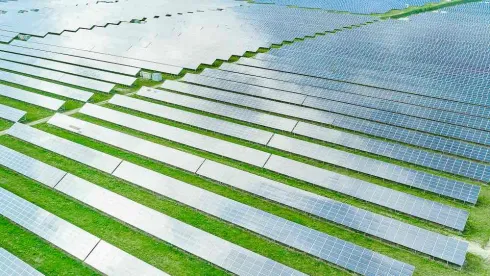On June 6, 2022, President Biden issued a declaration of emergency and authorization for temporary extensions of time and duty-free importation of solar cells and modules from SE Asia under 19 USC 1318(a). The basis for the declaration of emergency is the need to ensure electric resource adequacy and address the unavailability of solar cells and modules that is jeopardizing new, planned solar installations.
In short, there is an emergency because the US is unable to import solar modules in sufficient quantities to ensure solar capacity additions necessary to achieve US climate and clean energy goals, ensure electricity grid resource adequacy, and help combat rising energy prices.
Statutory authority.
The statutory authority cited in the declaration (19 USC 1318(a)) is a catch-all provision that allows the president to authorize CBP to permit duty free entry of certain items if the president declares the existence of an emergency.
Specifically, the statute provides for “the importation free of duty of food, clothing, and medical, surgical, and other supplies for use in emergency relief work.” Expect arguments from stakeholders that solar products don’t fit within the list, but this law is about as good as gets if you want to find a way to stop the application of antidumping and/or countervailing duties (“ADCVDs”).
Here’s how this is going to work—
New Commerce regulation.
Commerce likely will publish an interim final regulation – before the date of the preliminary determination in the solar circumvention proceedings – that will allow Commerce to instruct CBP to not collect duties on cells/modules from the four SE Asian countries for a period of 24 months (starting from the date of the proclamation). The new regulation will not apply to the current ADCVDs on imports of Chinese or Taiwanese solar cells/modules.
Current regulations (19 CFR Part 358) set forth the procedures for importation of supplies for use in emergency relief work free of ADCVDs, as authorized under 19 USC 1318(a). These regulations were published in 2006 (71 FR 63230 (October 30, 2006)).
Commerce will continue with the circumvention inquiries.
Commerce officials put out a press release on June 6 clarifying that the agency will continue the ongoing circumvention inquiries. The release states that “whatever conclusion Commerce reaches when the [circumvention] investigation concludes will apply once this short-term emergency period [24 months] is over. In accordance with the President’s declaration, no solar cells or modules imported from Cambodia, Malaysia, Thailand, and Vietnam will be subject to new antidumping or countervailing duties during the period of the emergency. Existing duties on Chinese and Taiwanese imports of solar cells and modules remain in effect.”
Commerce could still go negative at the prelim or final.
Commerce is proceeding with the circumvention inquiries related to imports of cells/modules from the four SE Asian countries. Commerce’s preliminary determination is due no later than August 29, 2022; Commerce’s final determination is due by January 26, 2023. Commerce could still issue a negative determination at the prelim or final stage of the circumvention inquiries.
What happens if Commerce goes affirmative?
If Commerce goes affirmative, per its regulations it must direct CBP to suspend liquidation and require a cash deposit of estimated duties. Pursuant to the emergency declaration and new regulation, Commerce would have the authority to not follow its regulations. In other words, Commerce would instruct CBP to not suspend liquidation or collect cash deposits for imports of solar cells/modules from the four SE Asian countries.
What could go wrong with this plan?
Possible risk is that an interested party to the circumvention inquiries (such as the domestic manufacturer that requested the inquiries) will sue on the new regulation and/or Commerce’s application of the current regulation (19 CFR Part 358), arguing duty-free treatment of solar cells/modules is beyond the scope of products covered under the statute (19 USC 1318(a)). The litigation could take at least a couple of years to play out.
If the plaintiff were to prevail (and assuming an affirmative final regarding circumvention), suspension of liquidation and estimated duty payments would kick in. It is unclear whether suspension/duty payments would be retroactive (ie, to date of affirmative preliminary determination) or prospective (eg, from the effective date of the final court decision). The latter seems more likely.
The bottom line. Implementation of the Declaration should provide a two-year window during which developers and other solar system providers should be able to import panels from Cambodia, Malaysia, Thailand, and Vietnam without the risk of retroactive tariffs.



 />i
/>i

